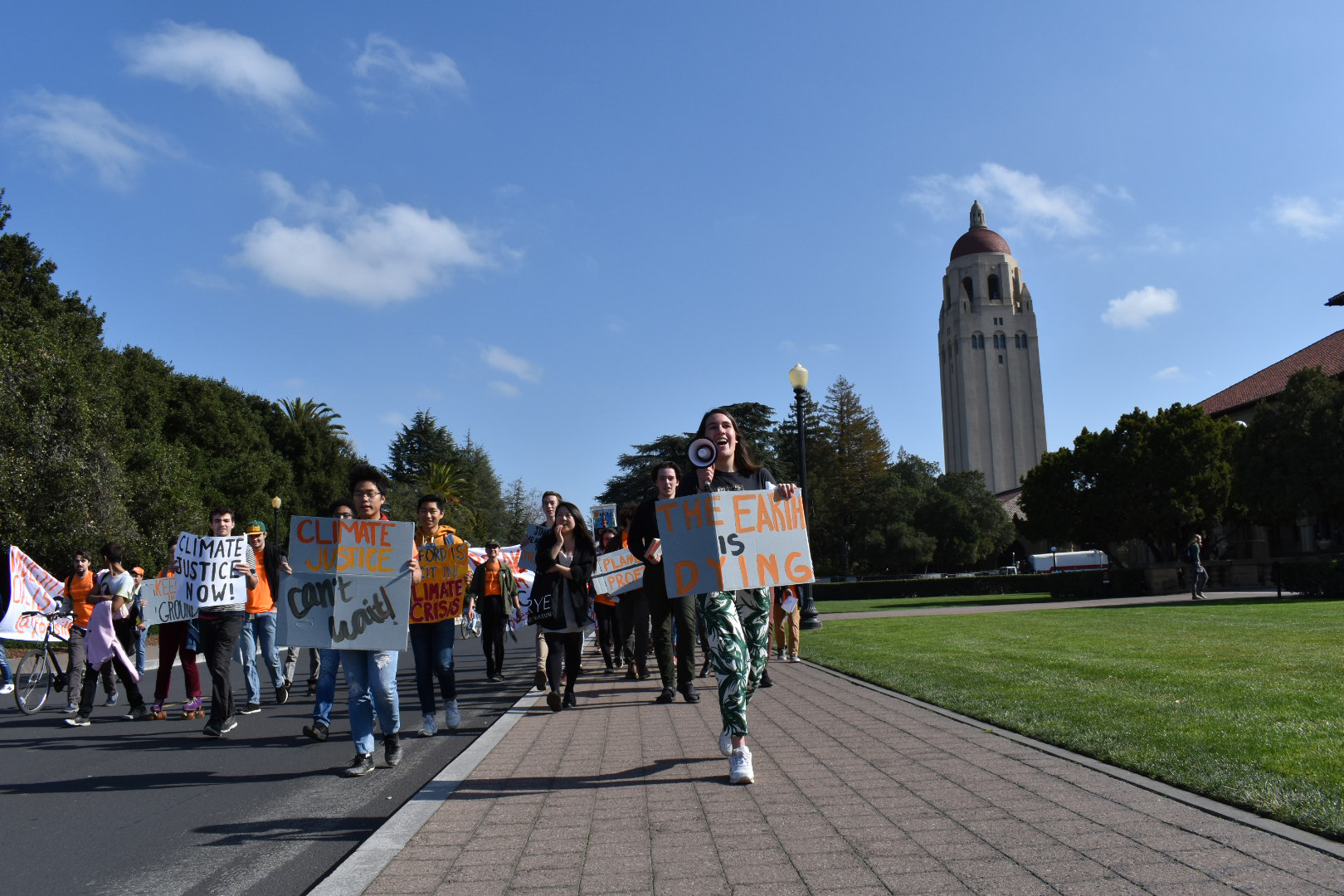Over 600 students and 100 faculty are petitioning the Board of Trustees to divest from fossil fuels ahead of the Board’s Wednesday meeting, at which they are expected to make a binding decision on divestment.
Two petitions, one aimed at students and one aimed at faculty, call on the Board of Trustees to divest from fossil fuels. The third petition aims to bring the divestment debate in front of the Academic Council, which includes all tenure-line faculty in the University.
These petitions come after the Faculty Senate voted against divestment on May 28, citing the fossil fuel industry’s ties to Stanford research before ultimately voting 11 to 28, with six abstentions, against a non-binding resolution that would have called on the University to divest from fossil fuels.
The student petition, started by Fossil Free Stanford, has 600 signatures as of Friday, Fossil Free Stanford member Zoe Brownwood ’22 told The Daily. The group plans to present its petition to the trustees ahead of their meeting.
“I think we’re hopeful [about divestment] especially since there’s been so much outrage after the Faculty Senate meeting,” Brownwood said. “But I think the Faculty Senate vote also just revealed a lot of unwillingness to actually make this change even though there’s a lot of supportiveness around climate action.”
The student petition highlights the Board’s lack of action on the issue, despite continued student demands.
“The students of Stanford have been calling upon our university to divest from fossil fuels for eight years, but we have yet to see any substantive action. Our representative bodies, the Undergraduate Senate and Graduate Student Council, have unanimously passed various resolutions in favor of divestment, without any response whatsoever from the university,” the petition states. “Our entire student body has overwhelmingly passed two referenda, first in 2014 and then 2018, in which over 83% of students voted to divest. We are still waiting on the Trustees to take action.”
A faculty petition, which makes similar demands to the Board of Trustees, claims that the May 28 Faculty Senate vote is “is not representative of the general sentiment of the faculty community at Stanford, which is composed of 2,276 individuals.” As of Tuesday night, the petition has 107 signatures.
Meanwhile, comparative literature professor David Palumbo-Liu is circulating a different faculty petition to bring the issue before a meeting of the Academic Council. The Academic Council meeting would allow faculty to hear from student presenters, following student complaints that student voices were not adequately represented at the Faculty Senate meeting.
“We ask that representatives from Students for Fossil Fuel Divestment, along with speakers of their choice, be among those giving presentations,” the petition states.
According to Palumbo-Liu, the faculty petition already has more than three times the number required to convene the body, although a date for such a meeting has not been set. The petition to hold an academic council meeting on divestment has 124 signatures as of Tuesday night.
The decision before the Board of Trustees is whether to designate the behavior of oil and natural gas companies as “abhorrent and ethically unjustified,” a standard adopted in 2018 that would require Stanford Management Company (SMC), the firm that manages the endowment to divest.
The Board’s decision will be informed by a task force which received input from a variety of sources, including Fossil Free Stanford.
The task force was also briefed by a policy lab conducted by former Stanford Law School Dean Paul Brest. The policy lab published a report which says that any actions the University takes, including divestment, will only have a miniscule impact on greenhouse gas emissions on their own. According to the report, greenhouse gas emissions “will depend on reciprocal actions by other institutions.”
Although some high profile universities — including Cornell University, Brown University and the University of California system— have announced they will divest or completed the process of divesting from fossil fuels, the vast majority have not.
“The report pretty much captures whatever expertise I and the students in the policy lab have,” Brest told The Daily. “What remains are judgment calls, and I have no reason to think that mine would be any better than the Trustees’.”
Contact Michael Espinosa at mesp2021 ‘at’ stanford.edu.
